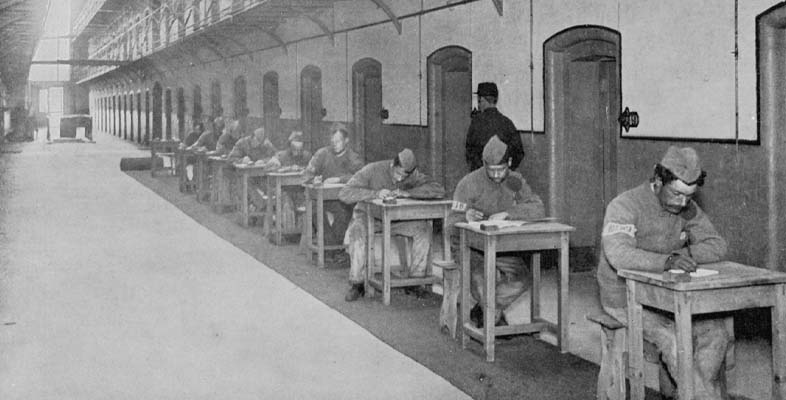
1. Can prison abolition work in large urban centres and inner cities with high crime rates and where ordinary people are fearful of being victimised?
Abolitionism is about building communities of inclusion and strengthening social bonds. We are less likely to be fearful of ‘crime’ if we feel a sense of connection to our local communities. Fear and insecurity around ‘crime’ are often closely tied to people feeling socially isolated. Fear of victimisation is significantly decreased when there are strong local communities and support mechanisms for people to participate in community activities and opportunities to get to know their neighbours better. Although measuring the relationships between communities ties and ‘fear of crime’ is complicated by other variables (most notably because social and economic inequalities often blight high crime areas sharpening tensions and conflict rather than fostering closer human connectedness) there is empirical evidence from Nordic Countries, which themselves are grounded more holistically in welfare policies and economies promoting social integration, indicating that stronger culture promoting the welfare of others and collective solidarity has a significant impact on both perceptions and recorded rates of ‘crime’.
2. Isn’t it human nature to be self-interested and to take advantage of others? Don’t we need a tough and harsh criminal justice system to keep these natural human impulses under control?
It is inaccurate to suggest that human beings are “naturally” interested mainly in themselves. No person is an island and we are all social beings. We cannot thrive without the help and support of other people. Human nature and human survival is dependent on us being grounded in notions of mutual aid and collaboration and we may well have a natural or innate predilection to help and care for other people. There are many historical and contemporary examples that can be drawn upon to indicate that human beings have a natural propensity to care and support people, sometimes even those that they do not know. There are everyday examples of human beings helping others when they are in trouble, from small acts of kindness like offering advice on directions when someone is lost to attempts to rescue other unknown people when their lives are imperilled (with the classic example of given here of the people who in flimsy lifeboats in coastal towns across the UK would risk life and limb in treacherous waters to rescue survivors of shipwrecks). There are also wonderful tales of hospitality to strangers when people have been dependent on others for guidance and assistance, most recently evidenced in the accounts of George Mahood or Peter Mortemor, whose travels across the UK were dependent upon the generosity of the general public.
3. Don’t we need criminal justice responses that morally condemn and punish those who have broken the law?
Blame and moral condemnation are based on the assumption that people should ‘get what they deserve’. However, this idea often begins at the wrong starting point, that is, at the point when someone breaks the law. But – for the sake of argument – if people really should get what they deserve, then how do we make sense of unjust and unequal societies where we do not all have the same choices and options? We may well make choices, but often these choices are heavily constrained by limited options and we do not all live in circumstances of our choosing. When we decide to lay the blame for a misdeed solely on the shoulders of an individual we fail to recognise the complex web of social, political and economic factors that may have also played a role. Even philosophers of law who are strong advocates of prisons and punishment have acknowledged that it is impossible to achieve justice through the penal law in a structurally unequal society.

4. Prison abolitionists only focus on traditional forms of crime, with identifiable offenders and victims – what about providing an appropriate symbolic response to harms with no obvious victims?
Abolitionism recognises that problems, troubles and harms exist – they step outside the normal boundaries and parameters of legal definitions of “crime” and think about the wider harms that come to people at the hands of states, corporations and – most importantly – the criminal justice system itself. So abolitionism is very well suited to dealing with new problematics and wrongful conducts whatever their origin. They also recognise that the symbolic message of punishment can be interpreted differently by different people. The penal law has never proved very effective in sending a symbolic message to its intended audience of lawbreakers and this is likely to remain the same whatever the criminal activity in focus.
5. Doesn’t prison abolitionism focus too heavily on individual, inter-personal crimes and ignore the structural issues that cause harm and violence – like gender, race, class inequality?
Abolitionism is a way of saying NO to certain responses to problematic and harmful events. It calls us to beware of punishment and warn that it will not deliver justice. Justice is a central concern of abolitionists, but they focus on the broader concept of ‘social justice’. They argue that there is an obligation to build a social structure that can meet the needs of all social members. Abolitionism calls for redress not just for individual and interpersonal harms but the harms generated by social injustice. Abolitionists promote interventions that can help build pro-social attitudes and solidarity as well as calling for a much more equitable distribution of wealth. The harms, violence and suffering of the prison are then situated within the structural violence of societies and abolitionists call for not only radical alternatives to the criminal process but also for radical alternatives to societies that systematically fail to meet human need.
6. Don’t prison abolitionists just suggest alternative punishments rather than alternatives to punishment?
Abolitionists fundamentally question the rationale of prisons and punishment – they question all institutions and practices predicated on the deliberate infliction of pain. They promote transformative rather than restorative justice – it is about transforming the lives of ‘victims’ and ‘offenders’ and of society as a whole. Making changes might be difficult, but the intervention must be predicated upon principles where both the means and the end of the response to the problematic conduct are concerned with building respect, dignity and more socially responsible society. Abolitionists have called for non-penal alternatives to punishment such as voluntary therapeutic communities and other intentional communities populated by lawbreakers and their families; places of sanctuary and refuge for both offenders and victims; mediation and conflict handling services; and the total reorientation of our response to ‘crime’ away from the offender and towards meeting the needs of victims.
 7. Is there any evidence that abolitionist alternatives are cheaper, more humane, or more effective?
7. Is there any evidence that abolitionist alternatives are cheaper, more humane, or more effective?
Prisons are both exceptionally expensive and impersonal. They do not and cannot establish an attachment with the lawbreaker. Community solutions for many ‘crimes’ have been proven to be more effective and value for money. Voluntary and community-led interventions which have directly engaged with people in their own community have often proven to be the most effective of all (see for example Outside Chance, Liz Dronfield, 1981). Because abolitionist alternatives are not grounded in the deliberate infliction of pain, inevitably they will be much more humane than any prison sentence could ever be.
8. If societies did away with prisons, wouldn’t we lose legal safeguards that only the criminal law and the certainty of imprisonment can deliver?
Prisons are lawless institutions run often on personal authority and an imperfect application of rules. Due process and following guidelines and rules are important. It is significant that any alternative in place of the criminal process has appropriate oversight and accountability. Alternatives require an awareness of the dignity and human rights of all parties, and a sensitivity to the ethic of care to ensure fairness and humane treatment.
9. It remains unclear what should happen if things go wrong – what happens when people don’t wish to participate in the mediation process when the offender might be asked to give too much in the mediation process, or power differentials between parties are entrenched?
No crime or harm is exactly the same as another. The uniqueness of every fracture that occurs in society or in our relations with other people demands a unique response. There needs to be a raft of alternatives rather than only just one (see this article for example). The appropriate response needs to be negotiated with all the parties involved. The needs of the individuals and the safety of victims, future victims and of perpetrators should be a top priority.
Prisons are lawless institutions run often on personal authority and an imperfect application of rules.
10. You say that there are a lot of alternatives available – but surely you have to match any suite of alternatives to the historical and political conditions of a given society? How could it ever work?
Alternatives need to be generated from the ground up in a given community and society. Ideas from other places and cultures should be used as inspiration. We need to adopt what works best within the social, political and economic conditions of any given society and not be bound by outdated or moralistic traditions. Abolitionism is a step-by-step process. Alternatives to the criminal process must be understood within the wider envelope of a commitment to social and transformative justice. Alternatives mean building a society in which the conditions are suitable for a wide range of interventions that can handle troubles, conflicts and disputes of all kinds.
Missed PART 1 of this topic? To read the first part of this theme, click here.






Rate and Review
Rate this article
Review this article
Log into OpenLearn to leave reviews and join in the conversation.
Article reviews